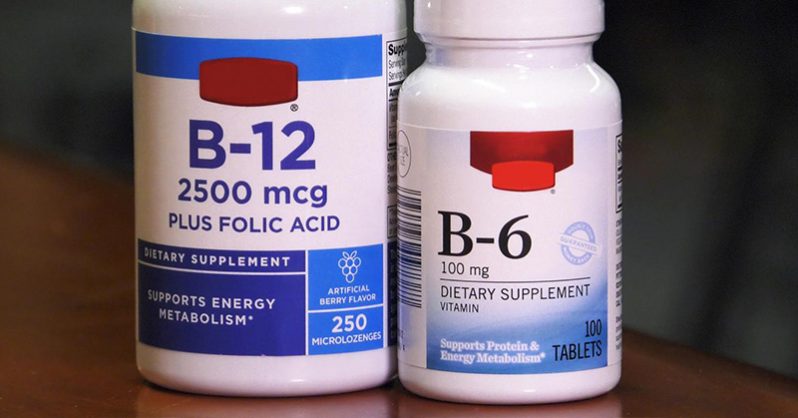Supplements Sold Over The Counter Linked To Lung Cancer In Men
B-Vitamins Linked To Lung Cancer In Men
There’s a lot of confusion surrounding the use of vitamins and minerals in supplement form, and whether it is necessary or even healthy. One such study that is adding to the confusion is linking B vitamins to an increased risk of lung cancer in men. Let’s take a closer look at the research and see what holds true and what doesn’t.
As you read this information remember to keep two things in mind: 1) a supplement is just that, a supplement to a healthy lifestyle and diet; 2) there is no ones simple answer, many factors need to be considered when it comes to a supplement’s effectiveness e.g. if you have a deficiency or need for a supplement, your particular symptoms/medical history, and the quality of supplement and dosage you are using.
Supplements Linked To Lung Cancer
Concerns about B-vitamin supplements and cancer have been growing for years. In fact, in 1998 a study in Norway assigned 6,837 people with heart disease to take either B vitamins or a placebo. The study, which was conducted from 1998 to 2005 was broken up into 4 separate groups:
- Folic acid (0.8 mg/d) plus vitamin B12(0.4 mg/d) and vitamin B6 (40 mg/d) (n = 1708);
- Folic acid (0.8 mg/d) plus vitamin B12(0.4 mg/d) (n = 1703)
- Vitamin B6alone (40 mg/d) (n = 1705)
- Placebo (n = 1721).
The researchers then watched as the people being studied died and contracted diseases in ensuing years—and the vitamin group raised concerns. In 2009, the researchers reported in the Journal of the American Medical Association that taking high doses of vitamin B12 along with folic acid (technically vitamin B9) was associated with greater risk of cancer and all-cause mortality.
A larger study conducted between 2000 and 2010 by Theodore Brasky and Emily White, two researchers at the Fred Hutchinson Cancer Research Center in Seattle, looked at 77, 000 people across Washington state. The Washington study was specifically designed to examine the roles of “dietary supplements”—compounds known as vitamins, minerals, and non-vitamin non-mineral compounds like ginseng—in cancer risk.
Lung-cancer risk among men in the Washington study who had 20 milligrams of B6 daily for years was twice that of men who didn’t. Among people who smoke, the effect appeared to be symbiotic, with B6 usage increasing risk threefold. The risk was even worse among smokers taking B12. Using more than 55 micrograms daily appeared to almost quadruple lung-cancer risk.
Strangely enough, there seemed to be no apparent risk among women—which doesn’t mean it doesn’t exist, only that it wasn’t apparent.
Theodore Brasky, one of the researchers for the Cancer Research Center in Seattle, explains that B vitamins all contribute enzymes and coenzymes to a metabolic pathway that breaks down folate in order to make the bases that comprise DNA. The pathway also regulates the expression of genes, by creating methyl groups that can essentially turn genes on and off.
Among smokers, who are already exposed to carcinogens, the effect of taking anything that impairs these cellular processes could be even more likely to lead to cancer.
Are B Vitamins Safe?
While this news may be concerning for those of us who take or have taken individual B vitamins in the past, it’s important to remember that these studies show correlation, not causation. They were also done on individual B Vitamins i.e. taking them in isolation as opposed to a B-complex.
Lastly, as with any supplement it is important to establish if you even need to take them (e.g. if you are anemic of deficient in Vitamin B12), and if you do, how to take them properly.
Like any vitamin or mineral, the best way to get what your body needs is through our diet. Some of the best sources of B6 are [4]:
- Poultry
- Seafood
- Bananas
- Leafy greens like spinach
- Potatoes
Excellent sources of B12 are:
- Shellfish like clams, mussels, and crabs
- Fin fish
- Beef
With health, it’s important to remember that what works for someone may not work for somebody else. Just because we can buy supplements without a prescription doesn’t mean that it’s healthy or harmless. Always try to make sure that your healing comes from food before supplements.
Disclaimer: Always consult your healthcare practitioner before adding any supplements or vitamins to your diet as they could do more harm than good.
Source: theheartysoul
“Supplements Sold Over The Counter Linked To Lung Cancer In Men”


